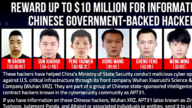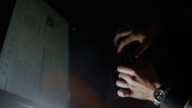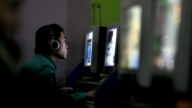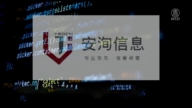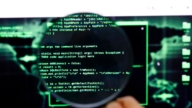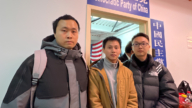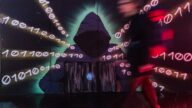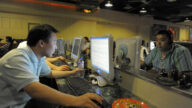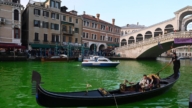【新唐人2015年01月28日訊】國際記者聯會(IFJ)日前公布2014新聞自由年報,稱中國和香港等地的新聞自由狀況,從本來已經惡劣的環境,進入更嚴峻的狀態。評論認為,這與中共自身的危機感有很大關係。
國際記者聯會(IFJ)1月26號,針對當前中國大陸、香港及澳門等地的新聞自由狀況,發佈年度報告。報告顯示,中共當局去年對大陸媒體採用了更多的鎮壓措施,加強了中國新聞的審查力度,和網路言論監控,以及騷擾、威嚇等。
報告還提到,中共從去年初整肅網路至今,已經有至少2200多家網站和300多個視頻及欄目被關閉,微信等社交網路平臺也遭到屏蔽,刪除的信息更多達2000餘萬條。
原《陝西電視臺》記者馬曉明表示,敢於觸犯中共敏感問題的媒體人,更是被殘酷打壓,甚至被投入監獄、被殺害等。馬曉明本人也因長期關注各個階層的維權民眾,曝光地方政府強征、強拆,揭露中共公檢法枉法濫權等罪惡,屢屢遭打壓。
原《陝西電視臺》記者馬曉明:「這十多年來我一直關注這些事情,無償的把這些事情披露出去,我被打過,打過還不只一次,被扣押過,照相機被沒收,膠卷抽出來曝光沒收,被審訊、被關押、被勞教這是多次,而且每年像兩會、清明節、六四紀念日等等,這樣的日子就被限制自由。」
馬曉明說,自己最近因關注當地一樁集資詐騙案,再次遭到打壓。
馬曉明:「2014年12月31號,有上千的集資詐騙受害者在省政府請願,一個警察和請願者推搡期間,有一個像是老年的人倒地了,請願者就往摔倒的人那個地方趕過去,我也就過去了,這個時候就有警察把我給抓住,扣了我有一個小時,照片全被刪除才把我放了。」
去年12月17號,總部設在紐約的保護記者委員會,發佈全球新聞自由狀況年度報告稱,中國是世界上監禁記者最多的國家,而且對外國記者的限制也越來越多。
去年9月底開始的香港佔領運動,國際記者聯會至少錄得39宗香港記者遭受警方,或反佔領示威者的毆打、騷擾、扣押或惡意指控個案。
一名香港記者說,北京在「佔中」運動期間,「粗糙且毫不掩飾」地干涉媒體報導,透過駐港官員施壓、干預編採過程,「多數媒體沒有抵抗……香港媒體已經屈膝臣服了。」
自由撰稿人朱欣欣分析,中共當局對新聞自由環境進行更嚴酷的打壓,與它自身的危機感有很大關係。
自由撰稿人朱欣欣:「每到它的危機加深的時候,它肯定要對環境進一步的鉗制,因為它唯恐人們傳播自由媒體的思想,同時對某些具體的社會事件發表自己的看法,使人們的精神和思想能夠自由的交流,使民間的思想達到共識,得到統一的時候,很可能轉化成具體的行動,所以中共對這十分的恐懼。」
朱欣欣表示,香港是中國的一部分,佔中運動對危機四伏的中國社會,造成很大震動,中共非常害怕這種民主運動蔓延到大陸。
大約兩週前,美國作家團體「美國筆會中心」發表報告說,香港媒體面臨「越來越高的風險」,包括人身遭受攻擊以及網路襲擊。
1月12號凌晨,香港媒體大亨黎智英住宅被人投擲汽油彈,他旗下的《蘋果日報》也多次成為攻擊目標﹔去年2月,《明報》前總編劉進圖在街頭遭兇犯砍殺,身中六刀,引起香港社會極大震驚。
國際記者聯會在一份聲明中提醒中國和香港商業機構,自由及獨立的媒體,在商業環境中扮演了重要的角色,新聞自由是一種人權, 媒體必須能在沒有恐懼和不受威脅的情況下履行專業職責。
http://bit.ly/1JUyKaj
採訪編輯/李韻 後製/鍾元
IFJ: China Press Freedom Worsens
The International Federation of Journalists (IFJ) released
the 2014 report of press freedom in Mainland China,
Hong Kong and Macau.
According to the report, the Communist regime has adopted
more repressive measures.
Critics believe it is related to the great sense of crisis
within the Chinese Communist Party (CCP).
IFJ’s seventh annual China Press Freedom Report indicated
that, direct censorship, internet surveillance, harassment
and intimidation are continuing to take place in China.
Further online restrictions in 2014 saw 2200 websites forced
to shut down.
An additional 300 video channels were also forced offline.
On social platforms such as WeChat, at least 20 million
messages were deleted, said IFJ.
Former Shaanxi TV reporter Ma Xiaoming says that
journalists who dare to touch on sensitive issues of the CCP
are being brutally suppressed, imprisoned and even killed.
Ma himself has experienced frequent suppressions
due to his reports of rights defending activities in China,
uncovering forced acquisition and demolition by local
government, and exposing capricious abuse of power
by the CCP legal systems.
Ma Xiaoming: “I have reported on these issues
for more than ten years.
I have been beaten more than once.
I was jailed, my camera was confiscated, my negatives
were exposed and confiscated.
Interrogation, detention, and labor camp are frequent;
especially during the two sessions, the Cold Food Festival,
the Tiananmen Massacre, and etc.,
I would be restricted of freedom."
Ma Xiaoming explains that he has recently been suppressed
again during a local fund-raising fraud report.
Ma Xiaoming: “On Dec. 31, 2014, thousands of the
victims of fraud petitioned to the provincial government.
During the chaos, an elderly fell. We all went to the elderly
but the police caught me and detained me for an hour.
They did not release me until my photos were deleted."
The Committee to Protect Journalists reported
on Dec. 17, 2014 that China is world’s worst jailer of the press.
Beijing has also issued more restrictive rules
to international journalists.
During the Occupy Movement in Hong Kong that began in
late September the IFJ noted at least 39 incidents in which
journalists were harassed, assaulted, detained or maliciously
accused by Hong Kong police and anti-Occupy Movement protesters.
A Hong Kong journalist said that interference from Beijing
was “raw and undisguised" with officials based in Hong Kong
putting pressure on reporters during the protests,
and “Most of the media did not offer resistance…
the Hong Kong media have already half-knelt."
Freelance writer Zhu Xinxin analyzes the even more severe
crackdown on the free press is highly related to CCP’s
sense of crisis.
Zhu Xinxin: “Whenever its crisis is deepened,
it is certainly further tightening the conditions.
It fears the idea of free press and the expression of views.
When people reach consensus via exchange of ideas
and minds, it frightens the CCP that it could transform
into concrete actions."
Zhu Xinxin says that Hong Kong’s occupy movement is a great
shock to the problematic Chinese society.
This democratic movement is a huge threat to the CCP.
According to PEN American Center’s report,
Hong Kong’s press freedom is increasingly insecure
due to physical violence against journalists
and cyber attacks against online media.
On the morning of Jan. 12, Hong Kong media mogul Jimmy Lai
was targeted by unidentified attackers on Monday,
with petrol bombs at his residence and the office
of the newspaper he founded, Apple Daily.
In February of 2014, the former chief editor of Ming Pao
newspaper, Kevin Lau was shockingly attacked
by unidentified attackers with a cleaver.
The IFJ reminds the business sectors of the Mainland
and Hong Kong that a free and independent press
plays an important role in the business environment.
The IFJ said, “Press freedom is a human right and the media
must be able to perform their professional duties
without fear and intimidation."
Interview & Edit/LiYun Post-Production/ZhongYuan


